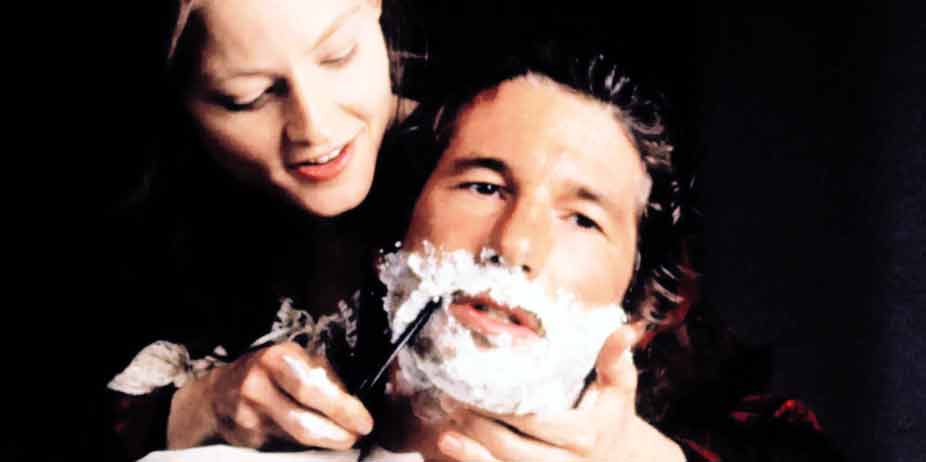 Sommersby
(1993)
Sommersby
(1993)
Reviewer: Erin Daman
Most everyone in Vine Hill remembers Jack Sommersby.
They remember him as a drunken, abusive lout. But nine
years after he left to fight for the Confederate Army,
Jack (Richard Gere) returns, a totally and completely
different person. He's kind, resourceful, and sober. Can
this be the same man? Almost everyone in town is glad to
see Jack back home again, all but two people -- his wife
Laurel (Jodie Foster) and her fiancé Orrin (Bill
Pullman), a prominent member of the church. Much to
Orrin's dismay, Laurel re-falls in love with Jack and
soon the Sommersby family is a happy family. Jack
hatches a plan to bring the town back from the brink of
poverty and together he and Laurel execute it.
Things are going well for Vine Hill and for Jack -- his
wife loves him, his young son Robert loves him, the town
loves him, and a baby is on the way. But Orrin hates him
and he wont rest until he has destroyed Jack Sommersby.
Orrin starts by accusing Jack of being an imposter --
Jacks shoe size has shrunk two sizes, his own dog
doesn't know him, and he doesn't recognize his late best
friends name. But no one in town believes Orrin's
accusations. At least, they don't want to believe
them. So Orrin takes things into his own hands, and
tries to kill Jack. The struggle that ensues is
interrupted by little Robbie and Orrin lets it drop. For
a while. His plans will have to wait. But something even
better than his own devious schemes rides into town -- a
marshal with a warrant for Jacks arrest. His crime?
Cold-blooded murder. Jack is taken to court. If he is
Jack Sommersby, as he says he is, he will be hanged. If
he claims to be another, his life will be saved, but his
and his family's reputation will be tarnished, and
promises he made as Jack Sommersby worthless. Is he Jack
Sommersby, or another? Will his life be taken, or
spared?
There are several admirable qualities in this film and
in its characters. Jack befriends and treats as equals
the black people in the community, in spite of a visit
from the Klu Klux Klan. The main themes of the movie are
truth, justice, and self-sacrifice. But many will be
upset, as I was, with the portrayal of Orrin's
character. Though he is a prominent member of the
church, he attempts to kill Jack and is hateful,
vengeful, obsessed with once more having Laurel for
himself, and plain-old messed-up. Its a disturbing and
highly inaccurate portrayal of Christianity. Violence is
limited to the fight between Orrin and Jack, and the
beating of a black man by the KKK. There is also a cross
burning. Language is plentiful, with 10 each of hell and
d-mn, 8 misuses of our Lords name, often coupled with
profanity, and about half a dozen strong profanities.
Also, for the weak of stomach, they apparently see a
need to show a whole, roasting pig up close, which is
kind of gross, and a lot of tobacco worms, which I find
absolutely stomach-turning.
The main content down fall is the sensuality. Though
sensuality is only present between a man and wife, it is
still highly unnecessary to show it. Some touching,
kissing sounds, implied nudity, and three instances of
implied sex round out the sensual undercurrent. Jack and
Laurel are shown kissing in bed and it leaves off there
but there isn't much doubt as to what follows. One scene
rather graphically finds them in the midst of
lovemaking. There is a small sprinkling of innuendo and
vulgar conversation which is brief but nonetheless
present. I must commend this films excellent costuming
-- in that aspect it is an undoubtedly fine film. The
music is good; nothing too astounding but good. All in
all, a good movie if you want a tearjerker but if you
want a happier, more upbeat film without the PG-13
rating, I'd pop in Little Women instead.
